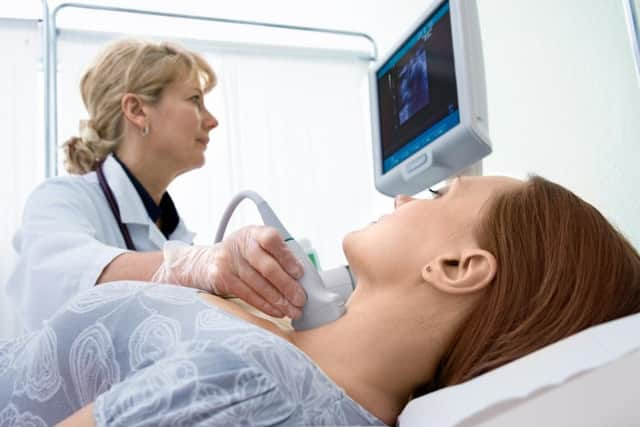Number of Scots dying from cancer on the rise, according to official stats
ISD Scotland statistics show there were 16,153 deaths from the disease in 2018 compared to 16,105 the year before and 15,211 in 2008.
While the cancer mortality rate has fallen 10% over the last decade, the number of deaths has not.
Advertisement
Hide AdAdvertisement
Hide AdThe ISD Scotland report explained: "This largely reflects an increase in older age groups within the population and the fact that cancer is more common among older people."


Lung cancer alone was the case of a quarter of all cancer deaths, taking the lives of 3,980 people last year.
The NHS figures also showed mortality rates for all types of cancer were 74% higher in the most deprived parts of the country than more affluent areas.
While mortality rates have fallen by 12% for men and 7% for women over the last 10 years, liver cancer deaths have risen markedly, up by 67% for women and 55% for men over the period.
The overall 59% increase in the mortality rate for liver cancer reflects the rise in Scots being diagnosed with the disease - with the report noting "survival from liver cancer is poor in most cases".
It added the main risk factors for liver cancer are obesity and alcohol, as well as being infected with either hepatitis B or C.
Cancer Research UK said staff shortages within the NHS were impacting on the ability to diagnose cancer at an early stage.
Gordon Matheson, the charity's public affairs manager for Scotland, said: "Too many families are losing loved ones to cancer, a disease that kills more people in Scotland than any other.
Advertisement
Hide AdAdvertisement
Hide Ad"Over the past 40 years our researchers have made great progress in the fight against cancer but it's clear much more needs to be done.
"For many common cancers, survival triples when diagnosed at an early stage so it's essential people with suspected cancer are given the best possible chance of an early diagnosis."
He added: "Staff shortages are harming the NHS's ability to diagnose cancer at an early stage.
"The Scottish Government needs to tackle this problem urgently and plan to ensure there are enough key cancer staff now and in the future."
Mr Matheson said a "one blanket approach" was not working.
"People in deprived communities are more likely to get cancer, more likely to die from it and even those who survive are more likely to struggle with a multitude of long-term problems," he said.
"It's clearer than ever before that one blanket approach to detection, treatment and care won't work for everyone.
"We need a system that can cope with the growing numbers of people with cancer while meeting their individual needs."
He added: "The Scottish Government has committed to publishing a workforce plan and we hope to see it soon.
Advertisement
Hide AdAdvertisement
Hide Ad"It's vital that it's accompanied by a fully-costed implementation plan that clearly sets out how the cancer care system will meet the current challenges, as well as those we know are coming."
Health Secretary Jeane Freeman said the continued fall in cancer mortality rates was "encouraging" but said ministers "recognise that more still needs to be done".
She added: "Our £42 million Detect Cancer Early (DCE) programme aims to increase the proportion of breast, bowel and lung cancers detected at an early stage.
"The programme also aims to reduce the inequality gap as those from more deprived areas are less likely to take part in screening and more likely to present at a later stage, when the chance of survival is lower.
"Our most deprived communities have seen the largest increase in people diagnosed at the earliest stage of bowel, breast and lung cancers since DCE began - an 11.8% increase.
"For lung cancer specifically, there's been a 38.1% increase in stage one diagnoses in the most deprived areas."
She added: "Screening remains one of the most effective ways to find cancer early and more than £2.7 million has been committed to health boards and third-sector organisations since 2016 through the Scottish Government's Health Inequalities Fund."